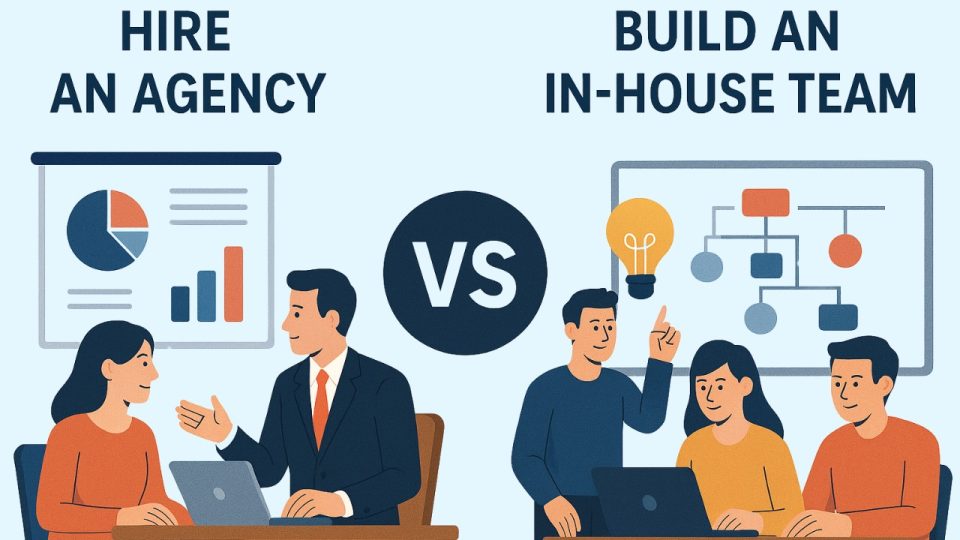Choosing between external marketing expertise and internal team development represents one of the most critical decisions businesses face when scaling their digital presence. Both options offer distinct advantages and limitations directly impacting campaign performance, budget allocation, and strategic execution. The decision requires careful evaluation of company size, growth stage, budget constraints, and long-term marketing objectives. For firms building visibility in regional markets, choosing a Digital Marketing Agency in Bangkok supports scalable marketing efforts. This external partnership approach must be weighed against the potential benefits of building internal marketing capabilities. The choice between agency partnership and in-house development affects every aspect of marketing operations, from creative development to performance measurement and strategic planning.
Cost comparison analysis
Financial considerations often drive the initial decision between agency partnerships and internal team development, though the actual cost comparison extends beyond simple salary calculations.
- In-house teams require salaries, benefits, training, software subscriptions, and ongoing professional development investments that accumulate over time.
- Agency partnerships typically involve monthly retainers or project-based fees that provide predictable budgeting while eliminating overhead costs associated with full-time employees. Agencies may charge premium rates for specialized services and lack the long-term cost stability that internal teams can provide once established.
The break-even point between agency costs and in-house expenses varies based on company size and marketing complexity, with smaller businesses often finding agencies more cost-effective while larger organizations may achieve savings through internal teams.
Expertise depth differences
Marketing agencies typically maintain diverse skill sets across multiple disciplines due to serving various clients with different needs, while in-house teams often develop deep expertise in specific company products and target audiences. Agencies invest in continuous training and cutting-edge tools to remain competitive across multiple industries.
- Agency teams access specialized knowledge in emerging platforms and marketing technologies through diverse client exposure
- In-house marketers develop an intimate understanding of company culture, customer journey nuances, and brand voice consistency
- Agencies provide immediate access to senior-level expertise without lengthy hiring and onboarding processes
- Internal teams build institutional knowledge that becomes increasingly valuable over time for strategic decision-making
The expertise question depends heavily on whether breadth or depth serves the company’s current marketing needs and growth trajectory more effectively.
Control and communication
Internal teams offer direct communication channels and immediate availability for urgent projects or strategic pivots, while agency relationships require more structured communication protocols.
- In-house marketers participate in company meetings, understand internal politics, and align naturally with broader business objectives.
- Agency partnerships sometimes create communication delays and misalignment with company priorities, particularly during time-sensitive campaigns or crisis management situations. However, agencies often bring objective perspectives and best practices from other industries that internal teams might overlook.
Communication becomes particularly important for companies with complex approval processes or rapidly changing market conditions that require immediate marketing adjustments.
Long-term strategic alignment
- In-house teams naturally align with company vision and long-term objectives through daily immersion in business operations and strategic planning sessions. This alignment creates marketing strategies that integrate seamlessly with product development, sales processes, and customer service initiatives.
- Agencies must work harder to maintain strategic alignment and may prioritize their business development over the client’s long-term success. However, external agencies can provide valuable market insights and strategic perspectives that internal teams might miss due to operational focus.
The strategic alignment question ultimately depends on whether marketing serves primarily tactical execution or strategic business development functions within the organization.

